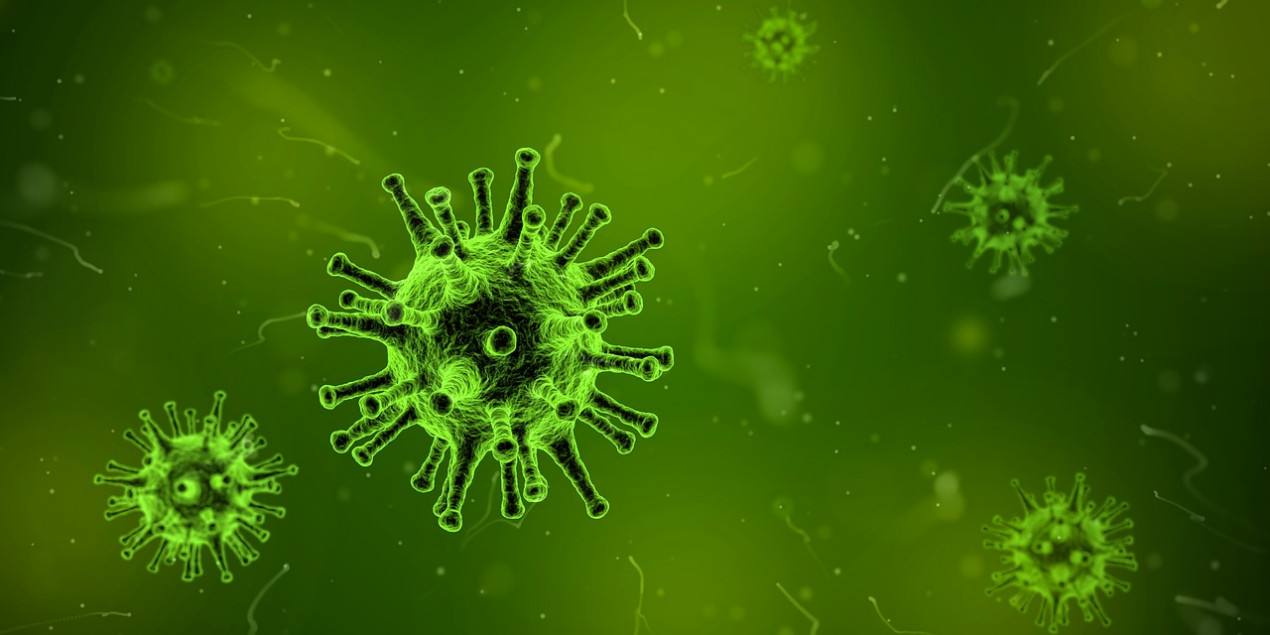We're here to help

What is canine herpesvirus?
Dog herpes is a common virus that affects a large proportion of the dog population. It’s believed as many as 80% of dogs will have been exposed to it at some point. Like other herpes viruses, most dogs are infected for life following exposure. The virus ‘hides’ in nerve cells and then reactivates periodically, usually at times of stress. Canine herpesviral infection is most severe in puppies up to one month old, although adult dogs can be affected too. Infections in pregnant dogs have been linked with abortions, stillbirths, and infertility. As a result, dog herpes is a big concern for breeders.
What to do if your dog is showing signs of herpes?
If you have a young puppy or pregnant bitch, call your vet straight away. In puppies up to three to four weeks old, canine herpesviral infection can strike very quickly, with death usually occurring within 24 hours of the first visible signs of a problem.
What are the symptoms of canine herpesvirus?
While both young puppies and adult dogs can be affected by dog herpes, the symptoms are much more obvious and severe in young puppies and pregnant bitches. Infected pups often stop suckling and are likely to suffer from lethargy, abdominal pain, nasal discharge, diarrhoea, rashes and breathing problems. It’s unlikely they will have a fever.
Older dogs may develop eye problems and respiratory disease (coughing, etc) as well as mild inflammation of the nasal passages (which may contribute to kennel cough), and inflammation of the genitals. Infections in pregnant dogs may be associated with abortions, stillbirths, and infertility.
Sadly, affected puppies usually die within a few days due to the severity of the disease, and the entire litter may be affected. Infection in pregnant dogs can cause infertility, stillbirth, and miscarriage.
Why is herpes so dangerous for young puppies?
The virus likes to replicate at temperatures of less than 37ËšC, and in adult dogs, normal body temperature is around 38.5ËšC so the virus cannot replicate effectively and is less likely to cause problems. However, young puppies aren’t as good at regulating their body temperature and can easily become cold. Their lower body temperature is ideal for the virus. It’s therefore very important to keep puppies warm by providing external sources of heat, such as heat lamps and plenty of blankets.
What is fading puppy syndrome?
If a puppy is infected soon after birth, canine herpesvirus is known to be one of the factors in what’s called fading puppy syndrome. This is when the puppy fails to suckle, loses weight and fades away despite intensive care. It’s worth noting that fading puppy syndrome is a catch-all title given to a whole host of illnesses and conditions that can cause death and ill-health in puppies. These include birth defects, infections acquired after birth and poor immune system development.

What is the treatment for canine herpesvirus?
Your vet is able to test for the virus but, as is the case with many viral diseases, treatment can be difficult and is often unsuccessful. Antiviral drugs do not appear to be effective and are hugely expensive. Your vet is, however, more likely to have success treating dogs who have been exposed to infected dogs but do not yet shown signs. Be aware that the herpes infection remains within the body of infected dogs for the rest of their lives, intermittently causing signs. Adult dogs often experience mild signs that improve without treatment.
Is there a herpes jab for dogs?
A vaccine is available, which can be given to pregnant bitches. The vaccine stimulates immunity against the virus, which is then passed on to the pups in the mother’s milk. This protects them in the first weeks of life.
What other steps can I take to prevent my dog being infected?
In the case of canine herpes, prevention is better than cure. You should keep your pregnant dog away from other dogs during the last three weeks of their pregnancy and first three weeks of motherhood. It’s also important that you insist on anyone coming into contact with your dog and young puppies to wash their hands first. Try also to keep outdoor clothes and shoes away from your dogs and puppies.

